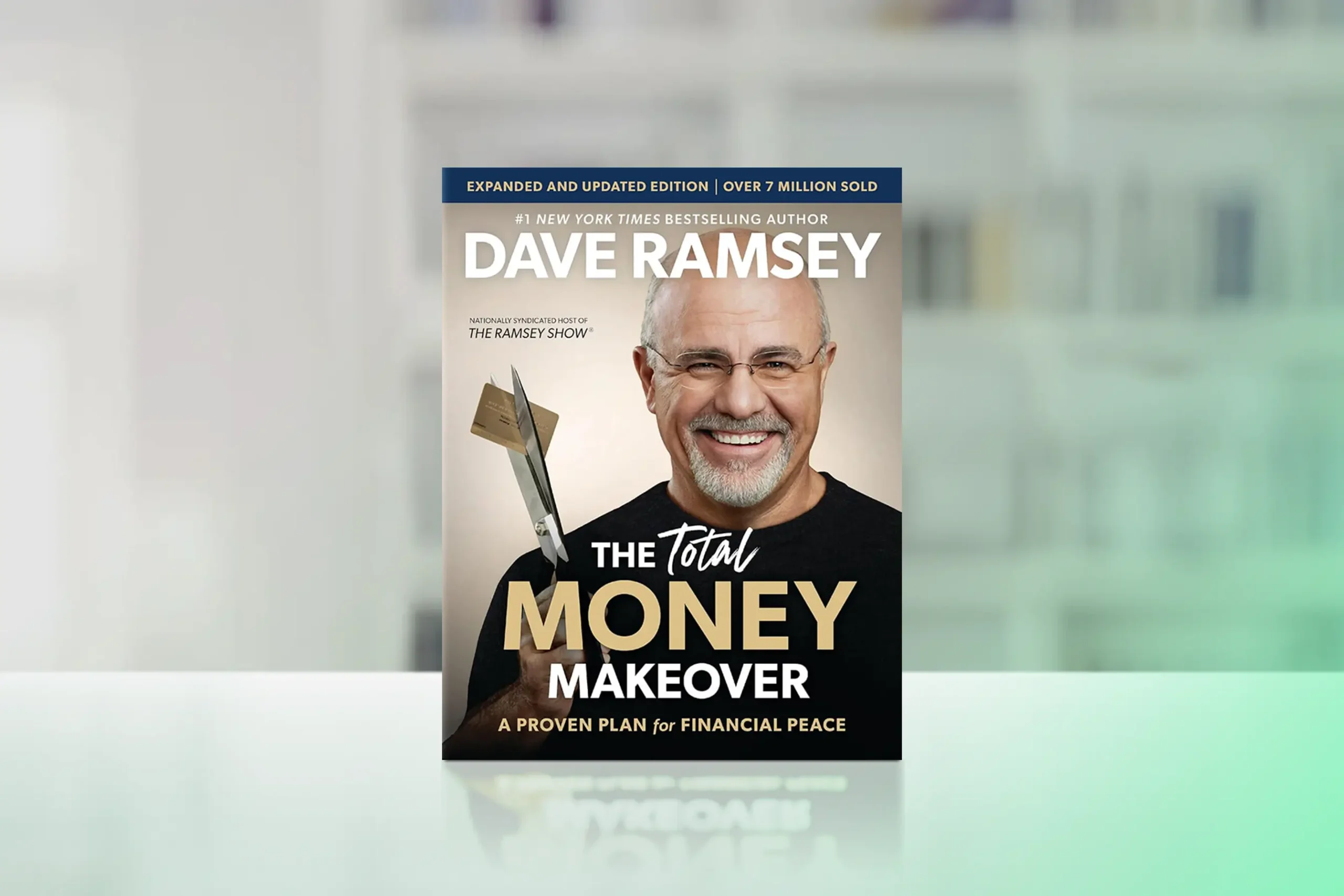Looking for practical budget tips that actually work? These simple ways to save money and live within your means focus on easy money-saving habits you can start today. From cutting unnecessary expenses to adopting frugal living strategies, you’ll learn how to stretch your income, reduce financial stress, and build a stronger path to financial freedom.
Inside this article:

Are You Living Paycheck to Paycheck?
Ever find yourself wondering where your paycheck went three days after getting paid? You’re not alone. Living within your means isn’t about earning more money—it’s about making smarter choices with what you already have.
The truth is, financial stress affects nearly 3/4 of Americans, with over 58% of Americans living paycheck to paycheck , while only 45% have any emergency fund. And it’s not just a problem in the US.
The Global Reality of Financial Stress
- United States: 73% of Americans rank finances as their #1 stress, with 77% reporting anxiety about their financial situation
- Europe: In the UK, 63% of adults experience financial stress. In Germany,57% of adults are stressed about their personal finances.
- Australia: Around 70% of adults report being “very or somewhat stressed” about money
- Gender Differences: 72% of women report financial stress compared to 67% of men
- Generational Stress: 82% of Gen Z and 81% of millennialssay finances cause them significant stress
- Household Debt Levels: Household debt increased by 22% of GDP across 26 OECD countries from 2002-2020
Financial stress is a worldwide crisis affecting people across all income levels, but here’s the encouraging part: small, consistent changes can transform your financial picture without requiring you to live like a monk or give up everything you enjoy.
These 10 simple strategies focus on practical budget tips, money saving habits and financial stress reduction techniques that actually work in real life. From cutting unnecessary expenses to adopting sustainable money-saving habits, you’ll discover how to stretch your income, reduce financial anxiety, and build a stronger foundation for your future—starting today.
Try this: Start with just one week of tracking every expense, no matter how small—even that $2.50 coffee counts.

1. Track Your Spending Daily
The first step to living within your means is knowing where your money goes. Use a budgeting app, spreadsheet, or even a notebook to record every expense. Small purchases add up quickly, and tracking them helps you identify wasteful spending patterns you might not even realize exist.
Why it’s important: Research from the Consumer Financial Protection Bureau shows that people who track their spending save an average of 15-20% more than those who don’t. When you see exactly where your money flows, you naturally become more mindful about each purchase decision.
Try this: Start with just one week of tracking every expense, no matter how small—even that $2.50 coffee counts.

2. Create a Realistic Monthly Budget
A budget is your financial roadmap, not a financial straitjacket. Allocate money for essentials (housing, food, bills), savings, and yes—discretionary spending too. A realistic budget helps you avoid overspending while ensuring your needs and some wants are covered.
Why it’s important: Studies published in the Journal of Consumer Research demonstrate that people with written budgets are 42% more likely to achieve their financial goals. The key word here is “realistic”—budgets that are too restrictive often lead to financial burnout and overspending rebounds.
Quick tip: Use the 50/30/20 rule as a starting point: 50% needs, 30% wants, 20% savings and debt repayment. Your first budget probably won’t be perfect, and that’s completely normal—adjust as you learn.

3. Cut Back on Non-Essential Expenses
Subscriptions, daily coffee runs, and impulse shopping drain your wallet faster than you’d think. Cancel or downgrade services you rarely use and find affordable alternatives for your everyday indulgences.
Why it’s important: According to financial expert Ramit Sethi’s research in “I Will Teach You to Be Rich,” the average household spends $273 per month on subscriptions they’ve forgotten about or rarely use. That’s over $3,200 annually that could go toward your financial goals instead.
Try this: Remove those unused subscriptions this weekend. Do a “subscription audit”—cancel anything you haven’t used in the past month.

4. Cook at Home More Often
Eating out frequently is one of the fastest ways to overspend without realizing it. Cooking at home not only saves money but also improves your health and gives you more control over ingredients. Meal planning and batch cooking can cut your grocery bills significantly.
Why it’s important: The Bureau of Labor Statistics reports that the average American household spends $3,526 annually on dining out. By cooking at home just three more nights per week, you could save approximately $1,500-2,000 per year while eating healthier meals.
Remember: Start small—even replacing one takeout meal per week with home cooking makes a meaningful difference. Use it as an opportunity to eat healthier, cook you favourite health meal. Batch cooking on Sundays can save both time and money during busy weekdays.

5. Use Cash or Debit Instead of Credit
Credit cards make it psychologically easier to overspend because you’re not immediately parting with your money. Switching to cash or debit ensures you only spend what you actually have, reducing debt accumulation and encouraging more mindful spending decisions.
Why it’s important: MIT research found that people spend 12-18% more when using credit cards compared to cash. Behavioral economist Dan Ariely explains in “Predictably Irrational” that the physical act of handing over cash creates what he calls “payment pain,” which naturally moderates spending.
Quick tip: Try the envelope method—allocate cash for different spending categories each week.

6. Automate Your Savings
Set up automatic transfers into a savings account right after payday. When you treat savings like a non-negotiable bill, you build a financial cushion without having to rely on willpower or remember to transfer money manually.
Why it’s important: Research from the Wharton Pension Research Council shows that people who automate their pensions and savings are three times more likely to increase their savings rate over time. Automation removes the decision fatigue and temptation to spend money that should be saved.
Try this: Start with just $25 per week automated—it adds up to $1,300 per year without much effort. Even $10 per week is better than zero, so don’t let perfectionism stop you from starting.

7. Embrace Frugal Living Habits
Frugal living isn’t about deprivation—it’s about being intentional with your money. Use coupons, shop sales, buy quality second-hand items, and find free or low-cost entertainment options. These small, consistent choices create substantial long-term savings.
Why it’s important: According to “The Millionaire Next Door” by Thomas Stanley, most wealthy Americans practice frugal habits regardless of their income level. They’ve learned that managing expenses is often easier than dramatically increasing income, and it’s completely within your control.
Remember: Frugal doesn’t mean cheap—it means getting maximum value for every dollar spent.

8. Pay Down High-Interest Debt
Debt, especially credit card debt with interest rates of 20-25%, eats into your financial freedom like nothing else. Focus on paying off high-interest balances first to free up cash flow for savings and investments that actually work for you.
Why it’s important: Financial advisor Dave Ramsey’s research shows that the average American household carries $6,194 in credit card debt. At typical interest rates, that costs about $1,200 annually in interest alone—money that could be building your wealth instead of enriching credit card companies.
Quick tip: Use either the debt avalanche (highest interest first) or debt snowball (smallest balance first) method—pick whichever keeps you motivated. Any money you save in interest is like earning a guaranteed return on your money.

9. Build an Emergency Fund
Unexpected expenses—car repairs, unexpected bills, job loss—can completely derail your finances if you’re not prepared. Start small, aiming for at least 2-4 weeks initially, then gradually work toward 3-6 months of living expenses.
Why it’s important: Federal Reserve data shows that almost 40% of Americans can’t cover a $400 emergency expense without borrowing money. Having even a small emergency fund prevents you from going into debt when life inevitably throws you curveballs.
Try this: Save any tax refunds, or any bonuses directly into your emergency fund.

10. Set Clear Financial Goals
Whether you’re saving for a home, retirement, or that dream vacation, clear goals keep you motivated when budgeting feels challenging. When you know exactly what you’re working toward, it becomes much easier to stick to your budget and resist impulsive spending.
Why it’s important: Research published in the Harvard Business Review demonstrates that people with specific, written financial goals are 10 times more likely to achieve them than those with vague intentions. Goals transform abstract concepts like “saving money” into concrete targets with emotional significance.
Remember: Make your goals specific, measurable, and meaningful to you personally—not what others expect. It’s okay to adjust your goals as your life circumstances change—flexibility keeps you on track.

Your 30-60-90 Day Action Plan
This progressive plan helps you build financial habits gradually without overwhelming yourself. Each phase builds on the previous one, creating sustainable changes that stick long-term rather than dramatic shifts that often fail.
First 30 Days – Build Awareness and Control
- Track every expense daily to understand your spending habits
- Create a realistic monthly budget and set spending limits
- Cut at least one non-essential expense (streaming service, frequent takeout)
- Start a small emergency fund with at least $100-$200 saved
Next 60 Days – Build Habits and Reduce Debt
- Stick to your budget consistently for two months
- Cook at home at least 4-5 times a week to lower food costs
- Automate savings to transfer money into a separate account
- Start paying down high-interest debt using your chosen method
Within 90 Days – Strengthen and Grow
- Build your emergency fund to cover at least one month of expenses
- Identify additional frugal living habits that fit your lifestyle
- Review and adjust your budget based on real results
- Set at least one clear financial goal and create an action plan
Key takeaway: Focus on just 1 or 2 changes at a time. Slow, consistent progress beats perfect execution every time, and small wins build the confidence you need for bigger transformations.
Next Steps
Living within your means doesn’t require drastic sacrifices or giving up everything you enjoy—just consistent, intentional choices that align with your values and goals. Here’s what you can expect:
- 30 days: You’ll have clear visibility of your spending and feel more in control of your money
- 60 days: You’ll have created some new money habits and see your first meaningful savings
- 90 days: You’ll have built a financial foundation with an emergency fund and clear goals
Research from the National Endowment for Financial Education confirms that people who implement basic money management strategies like these see significant improvements in their financial stress levels and overall life satisfaction within just three months.
By practicing these 10 simple money-saving strategies and following the 30-60-90 day action plan, you’ll gain real control over your finances, reduce daily money stress, and move steadily toward the financial freedom you deserve.
What’s one small financial change you could make this week that would make you feel more in control of your money?
Related articles
Smart Spending: Tips for Managing Day-to-Day Expenses
Master the art of mindful spending with practical strategies for everyday purchases.
How to Build an Emergency Fund: The Key to Financial Security
Create a financial safety net that protects you from unexpected expenses and gives you peace of mind.
Budgeting: How to Take Control of Your Money
Learn how to create and stick to a budget that actually works for your lifestyle and goals.
Financial Planning for Millennials and Gen Z: Preparing for Your Future
Navigate unique financial challenges and opportunities facing younger generations in today’s economy.
How to Set and Achieve Financial Goals That Align with Your Life Purpose
Transform your money management by connecting your finances to what truly matters to you.
Further reading
“I Will Teach You to Be Rich” by Ramit Sethi
Offers a no-nonsense approach to personal finance with actionable strategies for automating your money, directly supporting the article’s emphasis on practical financial systems.
“The Total Money Makeover” by Dave Ramsey
Provides a step-by-step plan for getting out of debt and building wealth, connecting to the article’s focus on debt elimination and emergency funds.
“Your Money or Your Life” by Vicki Robin and Joe Dominguez
Explores the relationship between money and life satisfaction, aligning with the article’s theme of intentional spending and value-based financial decisions.
“The Psychology of Money” by Morgan Housel
Examines the behavioral aspects of financial decision-making, supporting the article’s insights about spending psychology and money mindset.
Important Disclaimer:
This content is provided for educational and informational purposes only and should not be considered financial, legal, or tax advice. It is intended to help build general financial knowledge and a framework for thinking about personal finance topics such as budgeting, saving, emergency funds, goal-setting, investing, and working toward financial independence or financial freedom.
Everyone’s financial situation, goals, income, expenses, risk tolerance, and time horizon are unique, and the information presented may not be appropriate for your specific circumstances. Before making financial decisions, consider consulting a qualified professional for personalized guidance.
Examples and scenarios are for illustrative purposes only and may be based on assumptions or historical information. Actual outcomes will vary, and no financial strategy is guaranteed to be successful. Past performance does not guarantee future results. Market conditions, economic factors, and individual circumstances can significantly impact investment outcomes. What works for one person may not work for another.
This content should serve as a starting point for financial education, not a substitute for professional advice.
Helpful Resources:
-
NAPFA: Connects consumers with fee-only fiduciary financial advisors who must put client interests first
-
CFP Board: Directory of Certified Financial Planner professionals with strict ethics and education standards
-
Investor.gov: Education initiative from the SEC and FINRA offering free resources on investments
-
JumpStart: Nonprofit dedicated to financial education with curated resources and tools
-
Money Helper: Government-backed financial guidance and planning tools





